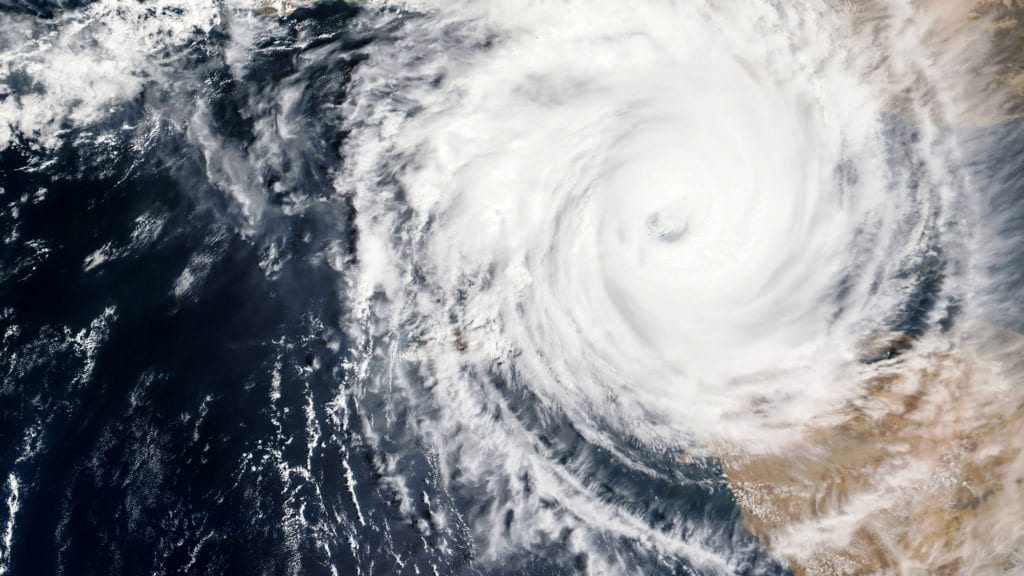With Hurricane Season in full swing, here is a recommended checklist of preparation items as provided by HurricaneSafety.org:
WATER
❏ Store water in plastic containers such as soft drink bottles. Avoid using containers that
will decompose or break, such as milk cartons or glass bottles. A normally active person
needs to drink at least two quarts of water each day. Hot environments and intense
physical activity can double that amount. Children, nursing mothers, and ill people will
need more.
❏ Store one gallon of water per person per day.
❏ Keep at least a three-day supply of water per person (two quarts for drinking, two
quarts for each person in your household for food preparation/sanitation).*
FOOD
Store at least a three-day supply of non-perishable food. Select foods that require no refrigeration,
preparation or cooking, and little or no water. If you must heat food, pack a can of sterno. Select
food items that are compact and lightweight. Include a selection of the following foods in your
Disaster Supplies Kit:
❏ Ready-to-eat canned meats, fruits, and vegetables
❏ Canned juices
❏ Staples (salt, sugar, pepper, spices, etc.)
❏ High energy foods
❏ Vitamins
❏ Food for infants
❏ Comfort/stress foods
COLLECT & PROTECT
Collect your important documents such as photo IDs, proof of address, medical records, and bank and insurance information. Protect paper and electronic copies in a waterproof and fireproof container.
FIRST AID KIT
Assemble a first aid kit for your home and one for each car.
❏ (20) adhesive bandages, various sizes.
❏ (1) 5” x 9” sterile dressing.
❏ (1) conforming roller gauze bandage.
❏ (2) triangular bandages.
❏ (2) 3 x 3 sterile gauze pads.
❏ (2) 4 x 4 sterile gauze pads.
❏ (1) roll 3” cohesive bandage.
❏ (2) germicidal hand wipes or waterless alcohol-based hand sanitizer.
❏ (6) antiseptic wipes.
❏ (2) pair large medical grade non-latex gloves.
❏ Adhesive tape, 2” width.
❏ Anti-bacterial ointment.
❏ Cold pack.
❏ Scissors (small, personal).
❏ Tweezers.
❏ CPR breathing barrier, such as a face shield.
NON-PRESCRIPTION DRUGS
❏ Aspirin or nonaspirin pain reliever
❏ Anti-diarrhea medication
❏ Antacid (for stomach upset)
❏ Laxative
❏ Activated charcoal (use if advised by the American Association of Poison Control Centers)
TOOLS & SUPPLIES
❏ Mess kits, or paper cups, plates, and plastic utensils*
❏ Emergency preparedness manual*
❏ Battery-operated radio and extra batteries*
❏ Flashlight and extra batteries*
❏ Cash or traveler’s checks, change*
❏ Non-electric can opener, utility knife*
❏ Fire extinguisher: small canister ABC type
❏ Tube tent
❏ Pliers
❏ Tape
❏ Compass
❏ Matches in a waterproof container
❏ Aluminum foil
❏ Plastic storage containers
❏ Signal flare
❏ Paper, pencil
❏ Needles, thread
❏ Medicine dropper
❏ Shut-off wrench, to turn off household gas and water
❏ Whistle
❏ Plastic sheeting
❏ Map of the area (for locating shelters)
SANITATION
❏ Toilet paper, towelettes*
❏ Soap, liquid detergent*
❏ Feminine supplies*
❏ Personal hygiene items*
❏ Plastic garbage bags, ties (for personal sanitation uses)
❏ Plastic bucket with tight lid
❏ Disinfectant
❏ Household chlorine bleach
CLOTHING AND BEDDING
*Include at least one complete change of clothing and footwear per person.
❏ Sturdy shoes or work boots*
❏ Rain gear*
❏ Blankets or sleeping bags*
❏ Hat and gloves
❏ Thermal underwear
❏ Sunglasses
FOR PETS
In the interest of protecting pets, the Humane Society offers these tips for inclusion in your family disaster plan:
Do not leave your pets behind.
Securely fasten a current ID tag to your pet’s collar & carry a photo of your pet.
It’s important to include the phone number of a friend or family member on the tag so anyone who may find your pet is able to reach someone who knows you.
Transport pets in secure pet carriers & keep pets on leashes or harnesses.
Call hotels in a safe/host location & ask if you can bring your pets. Ask the manager if a no-pet policy can be lifted during the disaster. Most emergency shelters do not admit pets. Call friends, family members, veterinarians or boarding kennels in a safe/host location to arrange foster care if you & your pets cannot stay together.
Pack a week’s supply of food, water & other provisions, such as medication or cat litter.
Do not wait until the last minute to evacuate. Rescue officials may not allow you to take your pets if you need to be rescued.
Keep a list of emergency phone numbers (veterinarian, local animal control, animal shelters, Red Cross, etc.).
SEVERE WEATHER UPDATES
Here is a list of resources where you can received up-to-date information regarding Hurricane Irma:
http://www.nhc.noaa.gov/
https://www.cyclocane.com/irma-storm-tracker/




